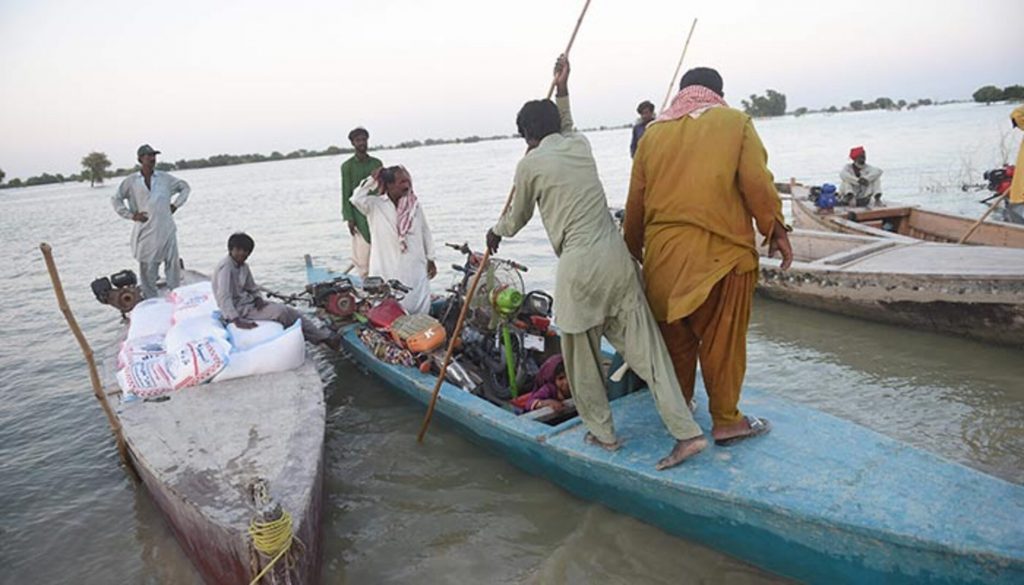(Staff Report):-
“Pakistan is among the top ten most vulnerable countries to climate change. One of the consequences of climate change is water scarcity. China-Pakistan water cooperation can help Pakistan cope with climate change and its derived disasters by managing water sources through the application of technical means”, highlighted Dr. Muhammad Ashraf, Chairman of the Pakistan Council of Research in Water Resources (PCRWR).
The UN Children’s Fund (UNICEF) said last month that more than 10 million people, including children, still lack access to safe drinking water after the catastrophic flood in 2022. Flooding, the worst in 30 years, is threatening even the soil and vast groundwater reserves. Pakistan has a chronic water shortage problem, which has been exacerbated by the floods.
Since the floods began, the China-Pakistan Youth Exchange Community has been providing food, temporary shelters, and drinking water stations in the worst-affected areas. In the flood-ravaged Dadu district, where many families have been displaced, the community has constructed 260 tent villages and is constructing a purified water station, which will provide clean water to nearly 10,000 people across eight villages.
Ma Bin, head of the community, said improving water management and infrastructure requires a lot of money, and he called for more assistance from Chinese and international organizations.
Last year, PCRWR signed a strategic cooperation agreement with China Water Resources Beifang Investigation, Design, and Research Co. Ltd. (BIDR) to contribute to Pakistan’s development in water management and smart irrigation. Dr. Ashraf told Gwadar Pro that fruitful exchanges and cooperation had been held in the water sector, and the next step was to demonstrate and disseminate these technologies to a wider range of stakeholders in Pakistan, including universities, farming families, and communities.
The scientific and green water management measures adopted in China in recent years are delivering significant benefits. Chinese enterprises are constantly exploring new modes of efficient water recycling and smart agriculture. Dr. Ashraf said that PCRWR is trying to introduce the concept of agricultural services in Pakistan, make these services more widespread, and gradually realize the transfer of technology from China to Pakistan.
Dr Muhammad Ashraf, commenting on the outcomes of water cooperation under CPEC, stated that these hydropower projects helped regulate water within the Pakistani system, particularly by storing water during periods of high flow and using it in subsequent years and over a long period of time. In the long run, this will aid in the resolution of Pakistan’s water scarcity crisis, which is expected to reach critical proportions by 2025.
“China has established sound mechanisms for water resource cooperation with its neighbors, including Pakistan, and Pakistan can learn from the effectiveness of China’s water diplomacy in cooperating with neighboring countries to manage cross-border water resources,” Dr. Ashraf continued.
Dr. Manzoor H. Soomro, an eminent scientist and academician, lauded the Global Civilization Initiative proposed by Chinese President Xi Jinping, saying that Chinese modernization provided Chinese solutions to human development, including water resource management. He stressed that the maintenance of infrastructure, including roads, dams, and hydropower stations, the training of staff, and the capacity building of local people and engaging youth in this process are more important for successful sustainable development after the projects.





